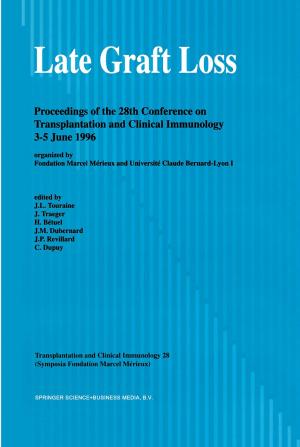Political Modernisation and the Environment
The Renewal of Environmental Policy Arrangements
Nonfiction, Science & Nature, Technology, Environmental, Nature, Social & Cultural Studies, Political Science| Author: | ISBN: | 9789401595247 | |
| Publisher: | Springer Netherlands | Publication: | March 14, 2013 |
| Imprint: | Springer | Language: | English |
| Author: | |
| ISBN: | 9789401595247 |
| Publisher: | Springer Netherlands |
| Publication: | March 14, 2013 |
| Imprint: | Springer |
| Language: | English |
Recent years have witnessed a substantial change in both the organisation and substance of environmental policy, both national and international. Western societies have seen a change in the relationships between the state, the market, and civil society, leading to new conceptions of governance, a process here called political modernisation that gives rise to the institutionalisation of new policy arrangements. An environmental policy arrangement refers to the organisation and substance of a policy domain in terms of policy coalitions, policy discourses, rules of the game, and resources. The book uses these theoretical notions to analyze changes in organisation, substance and governance in several environmental policy domains, such as infrastructure policies, global policies on climate change and biodiversity, green planning, and agriculture policy.
Changing relationships between the state, the market and civil society, caused by processes of globalization, privatisation and individualisation, have resulted in a plurality of policy arrangements in different domains. Despite the fact that environmental politics has been substantially renewed, there is a delicate balance between traditional and new policy arrangements. One of the main themes of the book is the explanation of this balance.
Recent years have witnessed a substantial change in both the organisation and substance of environmental policy, both national and international. Western societies have seen a change in the relationships between the state, the market, and civil society, leading to new conceptions of governance, a process here called political modernisation that gives rise to the institutionalisation of new policy arrangements. An environmental policy arrangement refers to the organisation and substance of a policy domain in terms of policy coalitions, policy discourses, rules of the game, and resources. The book uses these theoretical notions to analyze changes in organisation, substance and governance in several environmental policy domains, such as infrastructure policies, global policies on climate change and biodiversity, green planning, and agriculture policy.
Changing relationships between the state, the market and civil society, caused by processes of globalization, privatisation and individualisation, have resulted in a plurality of policy arrangements in different domains. Despite the fact that environmental politics has been substantially renewed, there is a delicate balance between traditional and new policy arrangements. One of the main themes of the book is the explanation of this balance.















